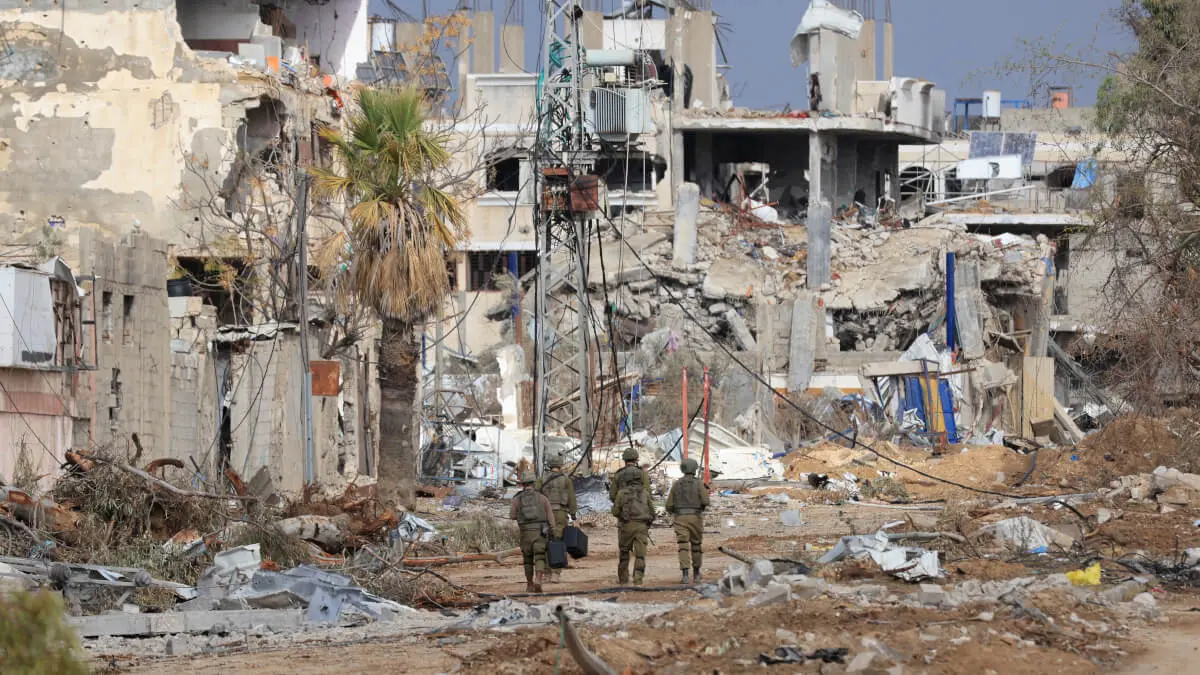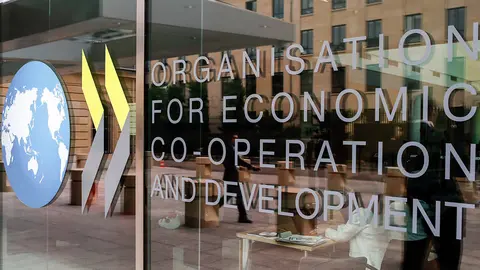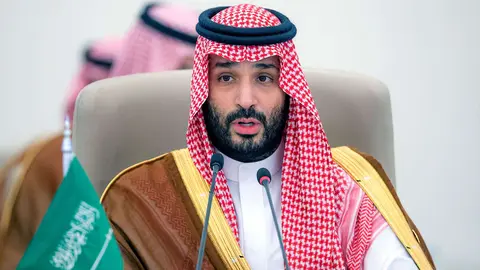The year it all got worse

While people are spending like there's no tomorrow in shops and restaurants, rushing through their last purchases to bid farewell to a year once again tinged with red, those who know history are already talking openly about the fact that we are immersed in a new global war. The third to be precise.
Every war means destruction and death. The invasion of Ukraine by Russian troops will be two years old on 24 February and the war between Israel and Hamas shows no signs of ending soon.
The UN has consistently expressed its concern about these two wars in particular, even though the world's population arrived in 2023 with several violent conflicts already brewing or well entrenched. And all these conflicts will be a cursed legacy for the new year that will soon begin.
Mina J. Mohammed, Deputy Secretary-General of the United Nations, herself speaks of global peace being "seriously threatened" and how the world's population is experiencing a sense of insecurity: six out of seven people have the perception that their environment will worsen in the face of conflict.
Today, Mohammed adds, the world is facing the highest number of violent conflicts since the Second World War, affecting two billion people.
That's a quarter of the global population who are just watching their lives deteriorate, their future prospects, because war or ongoing conflict in their environment cuts off any possibility for a person to plan for a better future because they may not finish their studies either, as they flee or move from one country to another; and often those fleeing war are trapped in a border limbo.
"When there is war or conflict, people live in a permanent crisis, we see it in Ukraine, with the Russian invasion devastating the lives of millions of Ukrainians and also aggravating a global food, energy and financial crisis," she said.
And then there is Israel's war against Hamas and its guerrillas, its terrorists and its state apparatus and its government that has already claimed the lives of, according to UN estimates, more than 12,000 people, half of them children. The devastation is even more acute because the population has no water, no electricity, no light and no food.
Israel's revenge for the horrendous atrocities committed by Hamas terrorists on hundreds of innocent civilians in dozens of Kibbutz is falling from the sky with an intense rain of thousands of bombs on the Gaza Strip.
António Guterres, head of the UN, speaks of a turning point for the world in the midst of a brittle peace: the body he represents has not been able to stop either Russia's invasion of Ukraine or Israel's revenge bombing of Palestinian civilians in the Gaza Strip.
On the subject
Before this new war, just last summer, the United Nations High Commissioner for Refugees (UNHCR) reported that globally more than 114 million people were displaced from their homes by war and violence.
According to UNHCR head Filippo Grandi, many people have left Ukraine, but also Sudan, Congo, Myanmar, Somalia and other parts of the world.
To date, it is not known what will happen to the two and a half million Gazans who have not been able to seek refuge in another neighbouring country because the Strip is closed and the Rafah border crossing (it connects with Egypt) is only open for the transit of several trucks carrying humanitarian aid. And already, Egypt and Jordan have said they will not receive Palestinians on their territory.
Right now, the cabinet surrounding Prime Minister Netanyahu is discussing what will happen to the Gaza Strip; in fact, the hardline wing of his government wants to expel all Gazans.
The very future of the stability of relations between Israel's neighbours will depend on whether Netanyahu plans an occupation of the Strip, whether temporary or permanent. All that is emerging is that once he succeeds in annihilating Hamas's power, it will be the government in Tel Aviv that will provide security and control over Gaza. There is already talk of a US-style occupation of Afghanistan and Iraq, but we do not know how much longer Saudi Arabia will continue to sit on its hands, or whether Iran, with the support of Russia and North Korea, will ultimately develop a larger military conflict with Israel under the watchful eye of Beijing.
The world chessboard is still very active, the players move their pieces without contemplation: civilian casualties are only collateral damage amid ambition and also the terrorist threat that seeks to destroy Western civilisation. A year that leaves a cursed legacy: war, blood and devastation... it's either them or us.



